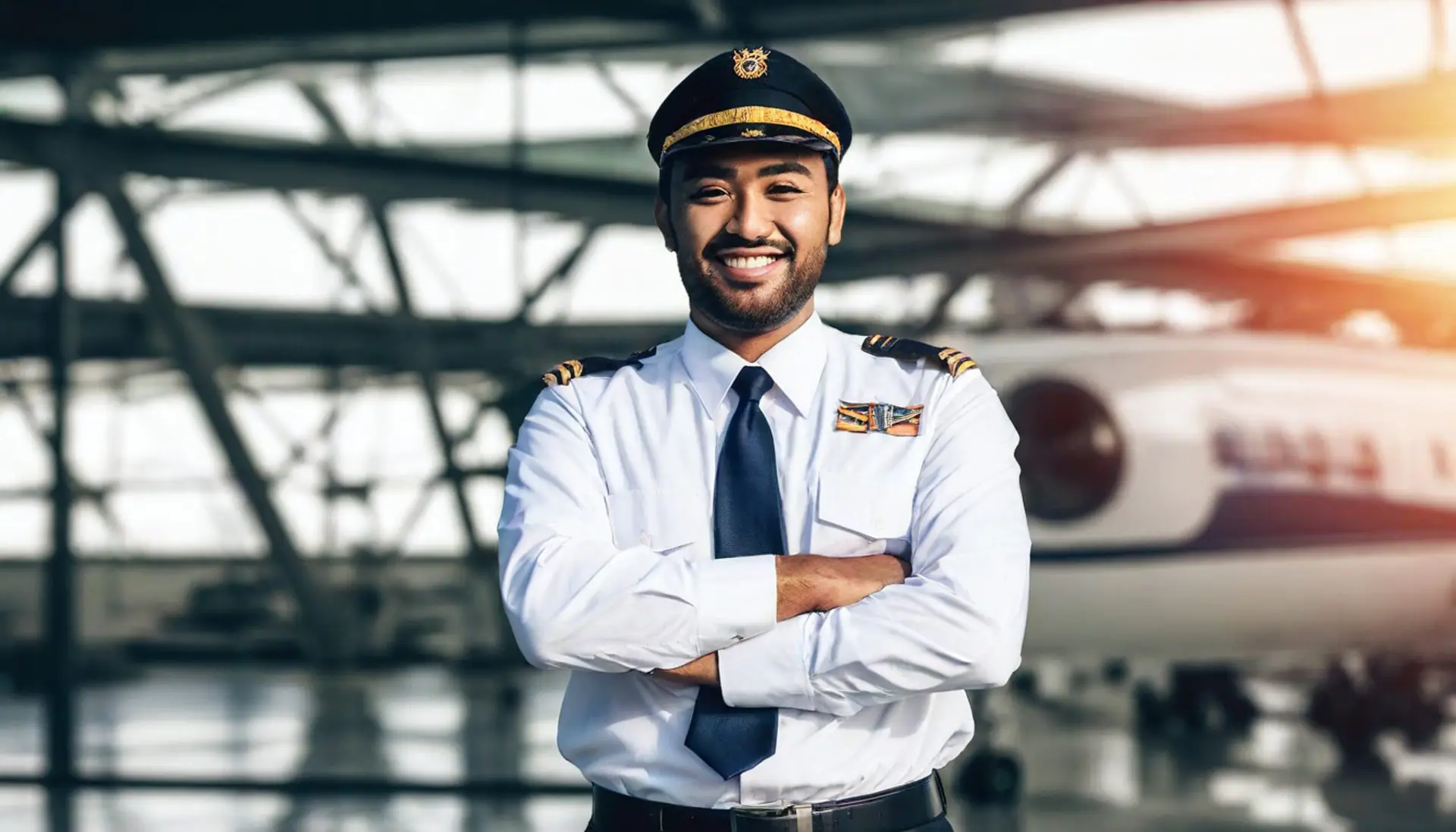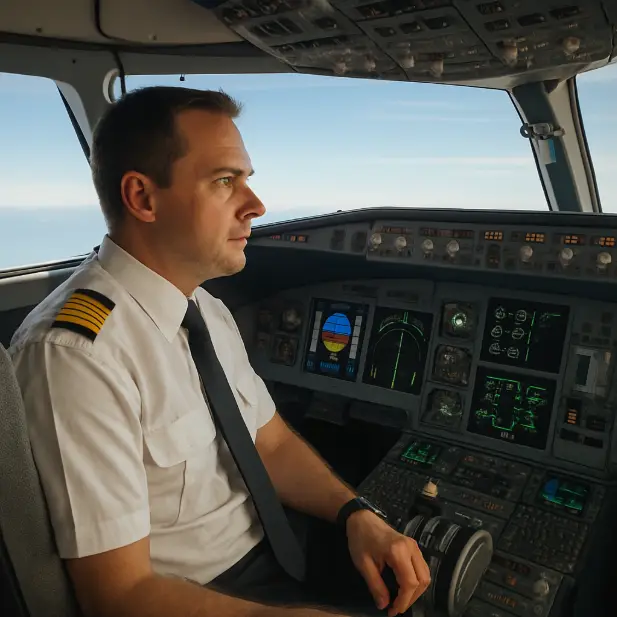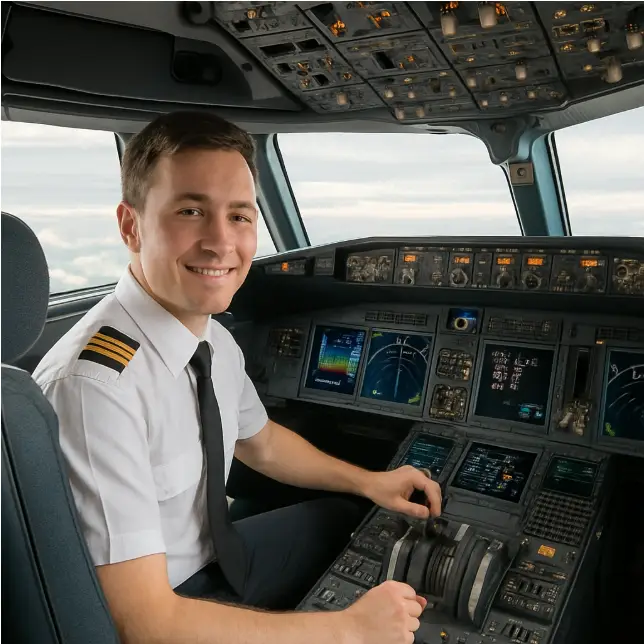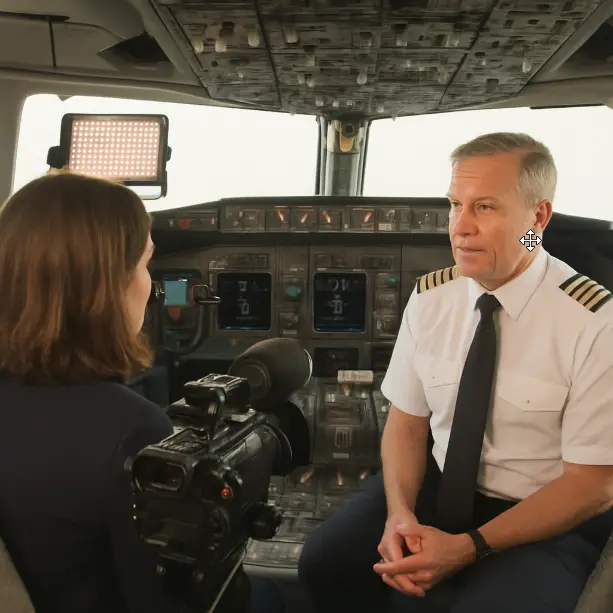Do You Need a Degree to Become a Commercial Pilot

- aviatorpro_6714
When it comes to becoming a commercial pilot, the requirements can vary significantly depending on the country and the airline. However, one commonality across the board is that a college degree is not always a mandatory requirement. Yet, it is essential to understand how different educational paths can influence your career trajectory in aviation. Let’s break down the essential qualifications you need, highlighting the role that a structured educational background might play in your journey.
Basic Pilot License Requirements
Before diving into the details of educational qualifications, it’s crucial to understand the basic requirements for obtaining a pilot license. Here are the steps involved:
- Private Pilot License (PPL): The first step in becoming a commercial pilot is obtaining a Private Pilot License. This license allows you to fly a small aircraft for personal use. To qualify, you must be at least 17 years old, pass a medical examination, and complete a minimum number of flight hours. This foundational step is crucial, as it gives you the fundamental skills and confidence needed to operate an aircraft safely.
- Instrument Rating: Once you have your PPL, the next step is to obtain an Instrument Rating. This certification allows you to fly in various weather conditions and enhances your piloting skills. Mastery of instrument flying is critical, as it equips you with the ability to navigate and operate the aircraft safely when visibility is compromised, thus expanding your operational capabilities.
- Commercial Pilot License (CPL): With an Instrument Rating in hand, you can now pursue a Commercial Pilot License. This license enables you to earn money as a pilot and is a critical milestone in your career. Requirements include additional flight hours, passing written and practical exams, and meeting medical standards. Earning a CPL signifies that you are competent in advanced flying skills and can handle the responsibilities that come with commercial aviation.
- Multi-Engine Rating: Many airlines require pilots to have experience flying multi-engine aircraft. This rating expands your capabilities and prepares you for more complex flying conditions. Multi-engine proficiency is essential for those looking to fly larger, more demanding aircraft, and it is often a prerequisite for many airline positions.
- Airline Transport Pilot License (ATPL): The highest level of pilot certification, the ATPL is necessary for those aspiring to be airline captains. This license demands extensive flight experience and rigorous testing. Achieving an ATPL is often seen as the pinnacle of a pilot’s career, as it requires not only technical prowess but also leadership and decision-making skills.
The Role of Education in Pilot Training
While a degree is not a strict requirement, education can play an essential role in your journey to becoming a commercial pilot. Here’s how:
- Ground School Education: Ground school education is a critical component of pilot training. It covers essential topics such as aerodynamics, navigation, meteorology, and aviation regulations. These courses provide the theoretical knowledge needed to pass written exams for various pilot licenses. Ground school lays the theoretical foundation that is crucial for practical flight training, ensuring you understand the principles behind your actions in the cockpit.
- Aviation Programs: Many aspiring pilots choose to enroll in aviation programs offered by colleges and universities. These programs offer structured training, combining ground school education with flight training. Although a degree is not mandatory, it can provide a comprehensive understanding of aviation and enhance your career prospects. Additionally, these programs often offer networking opportunities and career guidance, which can be invaluable as you navigate the aviation industry.
- Airline Hiring Preferences: While a degree is not a requirement, some airlines prefer candidates with a college education. A degree in aviation or a related field can demonstrate a commitment to the profession and may give you a competitive edge during the hiring process. Moreover, the analytical skills and discipline gained from higher education can be beneficial in managing the complex operations involved in aviation.
Commercial Pilot Training: What It Involves
The path to becoming a commercial pilot involves rigorous training and dedication. Here’s a closer look at what commercial pilot training entails:
Flight School Selection
Choosing the right flight school is a crucial decision in your journey. Look for a school with a strong reputation, experienced instructors, and a comprehensive training program. Consider factors such as location, cost, and the types of aircraft used for training. The right flight school can significantly impact your learning experience, offering the resources and mentorship necessary to excel in your training.
Selecting a school that aligns with your career goals and learning style can make a substantial difference in your training outcomes. Some schools have partnerships with airlines, offering pathways to employment upon completion, which can be a significant advantage in starting your career.
Flight Training Curriculum
Flight training typically consists of several stages, including:
- Initial Training: This stage focuses on basic flight maneuvers and familiarizing yourself with the aircraft. It lays the groundwork for more advanced training and is crucial for developing your confidence and competence as a pilot.
- Solo Flight: After demonstrating competency, you’ll embark on your first solo flight, a significant milestone in pilot training. This experience tests your ability to operate an aircraft independently, marking your progress and readiness for further challenges.
- Cross-Country Flights: These flights involve planning and executing trips to different airports, honing your navigation skills. They are essential for developing the ability to handle varying flight scenarios and conditions.
- Advanced Maneuvers: This stage involves mastering complex maneuvers and emergency procedures. Advanced training ensures that you can respond effectively to unexpected situations, an essential skill for any commercial pilot.
- Checkride: The final step is a checkride, where you demonstrate your skills to an examiner to earn your license. This comprehensive assessment evaluates your proficiency in all areas of flight training, confirming your readiness to operate as a commercial pilot.
Building Flight Hours
Accumulating flight hours is a critical part of becoming a commercial pilot. Airlines typically require a minimum number of flight hours for employment, often around 1,500 hours. Flight instructors and charter pilots often use these roles to build experience and log additional flight hours. Building flight hours not only enhances your skills but also broadens your exposure to different flying conditions and scenarios.
Gaining experience in diverse flying environments is crucial for developing a well-rounded skill set. Flight hours provide practical insights and learning opportunities that are invaluable in preparing for a career in commercial aviation.
The Importance of Soft Skills
While technical skills are vital, soft skills also play a crucial role in a pilot’s career. Here are some key soft skills that pilots need:
- Communication: Effective communication with air traffic control, crew members, and passengers is essential for ensuring safety and efficiency. Clear and concise communication is fundamental in preventing misunderstandings that could compromise flight safety.
- Problem Solving: Pilots must be able to assess situations quickly and make sound decisions, especially during emergencies. Effective problem-solving skills are essential for navigating complex situations and ensuring the safety of all onboard.
- Teamwork: Collaboration with co-pilots, cabin crew, and ground staff is essential for a smooth flight operation. Teamwork fosters a supportive environment where safety and efficiency are prioritized, enhancing the overall flight experience.
- Adaptability: Weather conditions and flight plans can change rapidly, requiring pilots to adapt to new situations. Adaptability is key to maintaining composure and making informed decisions under pressure, ensuring successful flight operations.
Conclusion: Do You Need a Degree?
In conclusion, while a college degree is not a strict requirement to become a commercial pilot, it can be beneficial. The aviation industry values experience, dedication, and the ability to handle complex situations. A degree may give you an advantage in the competitive job market, but the primary focus should be on obtaining the necessary licenses, accumulating flight hours, and developing essential skills.
Ultimately, the path to becoming a commercial pilot is about passion, perseverance, and continuous learning. By following the necessary steps and embracing the challenges, you can achieve your dream of taking to the skies as a commercial pilot. Whether or not you choose to pursue a degree, the key is to remain committed to honing your skills and gaining the experience needed to excel in this dynamic field.



